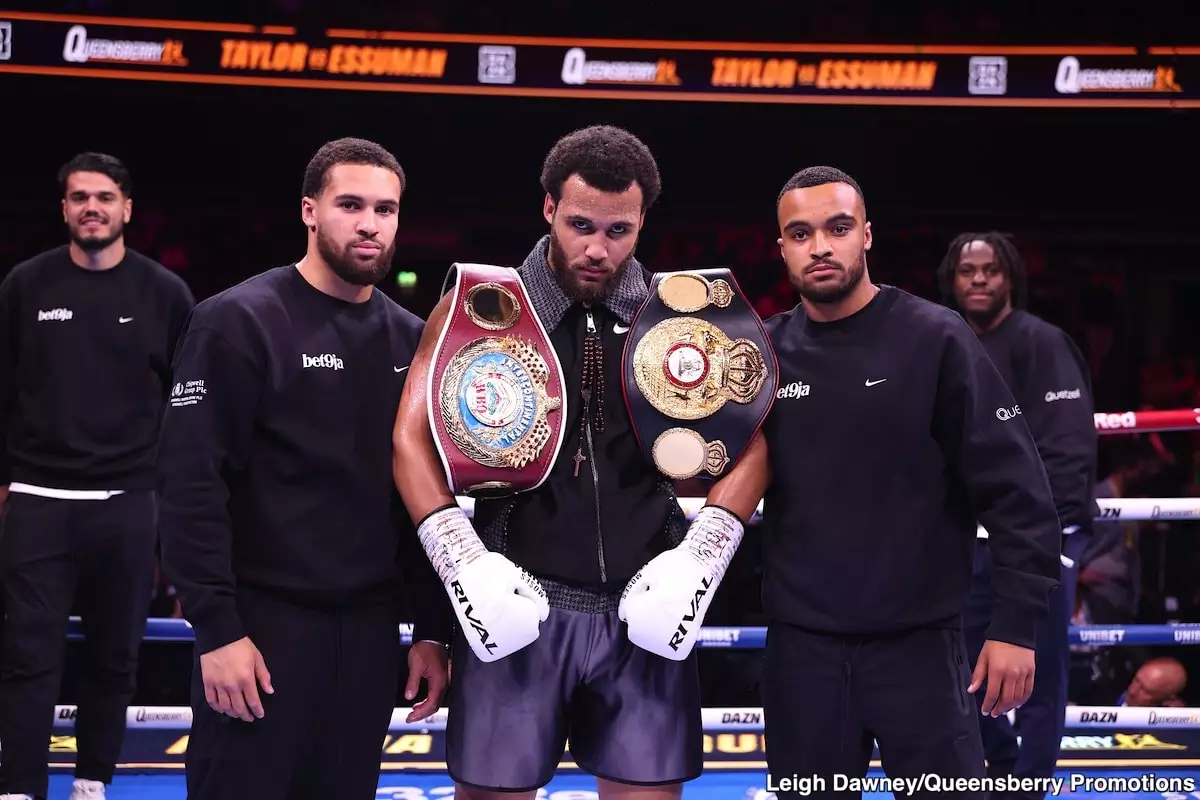The world of professional boxing is often painted as a meritocratic arena where talent, grit, and performance dictate one’s rise through the ranks. However, recent developments surrounding Moses Itauma—newly crowned as the #1 contender in the WBO heavyweight rankings—have ignited a significant debate. With a record of 12-0, featuring 10 knockouts, Itauma’s ascent seems questionable at best given the caliber of his competition and the nature of his victories. This article explores the controversy surrounding his ranking and what it signifies for the sport.
Questionable Victories
To assess Itauma’s meteoric rise, one must examine the fighters he has faced. His most recent opponent, Mike Balogun, a 36-year-old with a mixed legacy and no significant victories, epitomizes the lack of formidable competition in Itauma’s brief career. In fact, Balogun himself represents the strongest win on Itauma’s resume—a concerning fact for any fighter touted as a top contender. Other notable names include Demsey McKean, who entered their match coming off a knockout defeat and a full year on the sidelines, and the 45-year-old Mariusz Wach, whose best days are long gone.
What’s alarming is that these wins, devoid of significant achievements, have elevated Itauma into a position typically reserved for fighters who have proven themselves against credible adversaries. Boxing aficionados are not merely cranks voicing discontent; they are invoking a tradition of meritocracy that seems to have been overlooked. Surely, Itauma could—and should—have faced tougher opposition before being anointed the #1 contender.
The Decision’s Implications
The decision by the WBO to elevate Itauma has prompted an array of reactions, not just from fans but also from critics who argue that such a move undermines the integrity of boxing rankings. When a fighter is placed at the top of the list without adequately earning that spot through competitive bouts, it risks devaluing the achievement of those who have endured arduous fights against quality opponents.
Furthermore, there is the risk of crafting a narrative that may not align with reality. By highlighting Itauma as a rising star, there’s a possibility of creating excessive pressure, leading to unrealistic expectations from fans and promoters alike. The statements made by Itauma himself regarding stepping up his competition speak to this; while he acknowledges the need for more rigorous bouts, it seems that the narrative has already outpaced the reality.
Inflated Ego or True Potential?
When analyzing Itauma’s mindset, one can feel the weight of his burgeoning fame pressing down on his shoulders. In statements shared post-fight, he manifests confidence—perhaps bordering on arrogance—with phrases indicating that he feels he is on the cusp of greatness. However, it is essential to differentiate between confidence and overconfidence. Given his relatively sheltered career thus far, he might be experiencing an inflated sense of self-worth that may not withstand the pressure of facing elite competitors.
Moreover, Itauma’s reference to wanting to box in America suggests an ambition that is commendable, but also reflects a naivety if he believes that elite status will be easily won without first overcoming the challenges present in the international boxing scene. It is imperative for rising stars like Itauma to embrace genuine competition to test their mettle and live up to the hype.
Comparisons and the Fight Game
It is worth considering the trajectory of his brother, Karol Itauma, who also experienced rapid success before facing hurdles that revealed cracks in his skill set when pushed against competent opposition. This family’s history poses the question: Is Moses Itauma truly prepared for the rigors of being a top contender? Or is he yet another fighter caught in the cycle of early success without the hard-earned experience to back it up?
As boxing fans, it is essential to rally around the ideal of meritocracy and hold organizations accountable for the rankings they issue. By placing untested fighters into positions of recognition, we risk spiraling into a culture where genuine talent is overshadowed by marketing schemes and inflated records. The sport deserves contenders who have fought hard battles, endured losses and setbacks, and emerged with newfound strength and resilience.
In a sport where gladiatorial spirit governs honor, Moses Itauma’s situation serves as a cautionary tale. Will he rise to the challenge and fulfill his potential? Or will he fade as the dust settles around the controversial acclaim he has swiftly garnered? The boxing community watches on, hoping for the former while preparing for the latter.

